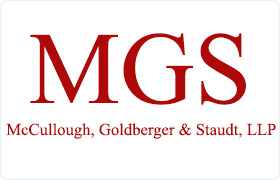Hopewell Junction Real Estate Other Lawyer, New York
Sponsored Law Firm
-
 x
x

Click For More Info:
-
Mccullough, Goldberger & Staudt, LLP
1311 Mamaroneck Ave Suite 340 White Plains, NY 10605» view mapReal Estate Other Get The Support You Need For Your Case
A knowledgeable attorney is always accessible, the client is kept abreast of the issues and all matters are handled efficiently through completion.
800-707-8440
Includes: Commercial Leasing, Commercial Real Estate, Condominiums, Conveyancing, Housing & Urban Development, Premises Liability, Residential Real Estate, Title Insurance
Gerald A. Vergilis
Commercial Real Estate, Estate Planning, Criminal, Corporate
Status: In Good Standing *Status is reviewed annually. For latest information visit here
FREE CONSULTATION
CONTACTJames P. Horan
Commercial Real Estate, Commercial Leasing, Communication & Media Law, Cleanup & Superfund
Status: In Good Standing *Status is reviewed annually. For latest information visit here
FREE CONSULTATION
CONTACTJoseph Salem Sayegh
Residential Real Estate, Residential Real Estate, Commercial Real Estate
Status: In Good Standing *Status is reviewed annually. For latest information visit here Licensed: 37 Years
Eileen Mary Reynolds
Contract, Commercial Real Estate
Status: In Good Standing *Status is reviewed annually. For latest information visit here Licensed: 39 Years
Christina Marie Randazzo
Real Estate Other, Divorce, Child Support, Divorce & Family Law
Status: In Good Standing *Status is reviewed annually. For latest information visit here Licensed: 14 Years
Robert Irving Miller
Estate Planning, Medical Malpractice, Health Care, Commercial Real Estate, Mass Torts
Status: In Good Standing *Status is reviewed annually. For latest information visit here Licensed: 31 Years
Kimberly Brown
Medical Malpractice, Premises Liability, Employment, Mass Torts, Car Accident
Status: In Good Standing *Status is reviewed annually. For latest information visit here Licensed: 20 Years
Mary Pat Burke
Premises Liability, Products Liability, Medical Malpractice
Status: In Good Standing *Status is reviewed annually. For latest information visit here Licensed: 36 Years
Ellen Anne Fischer
Premises Liability, Federal Appellate Practice, Employee Rights, Medical Malpractice
Status: In Good Standing *Status is reviewed annually. For latest information visit here Licensed: 32 Years
Robert R. Haskins
Premises Liability, Mass Torts, Dispute Resolution, Health Care, Medical Malpractice
Status: In Good Standing *Status is reviewed annually. For latest information visit here Licensed: 41 Years
 Charles Goldberger White Plains, NY
Charles Goldberger White Plains, NY AboutMccullough, Goldberger & Staudt, LLP
AboutMccullough, Goldberger & Staudt, LLP Practice AreasExpertise
Practice AreasExpertise